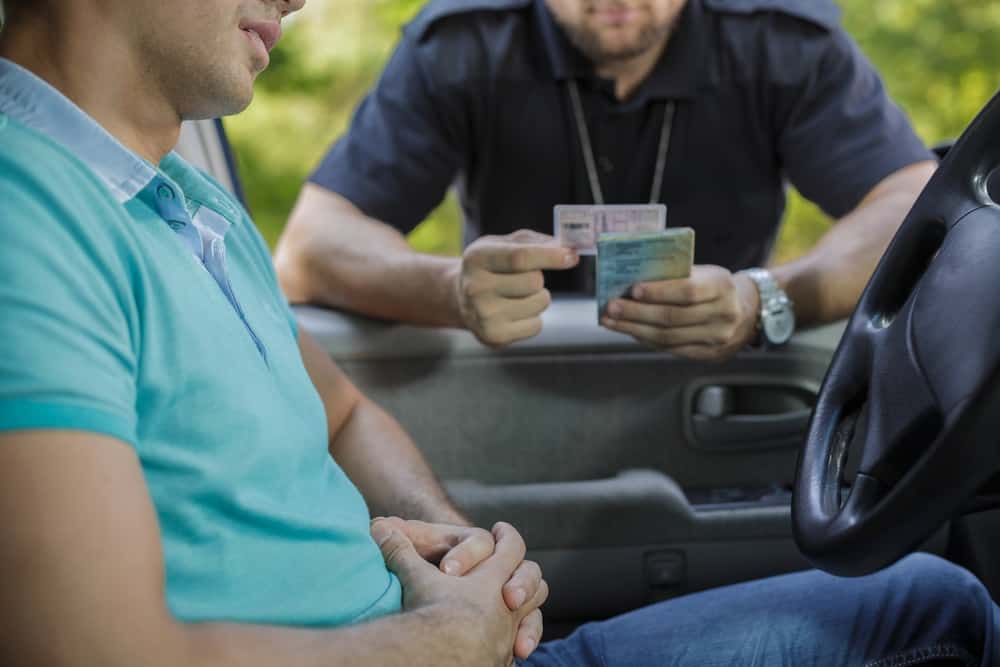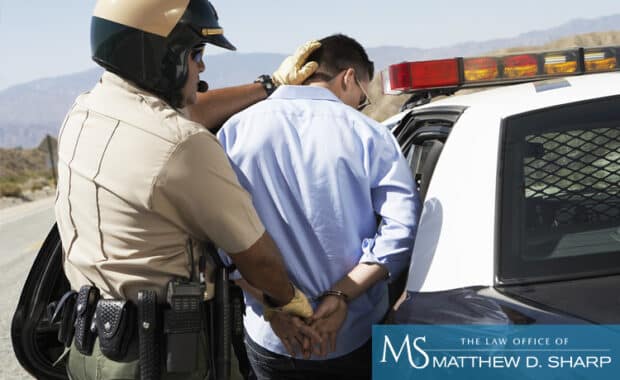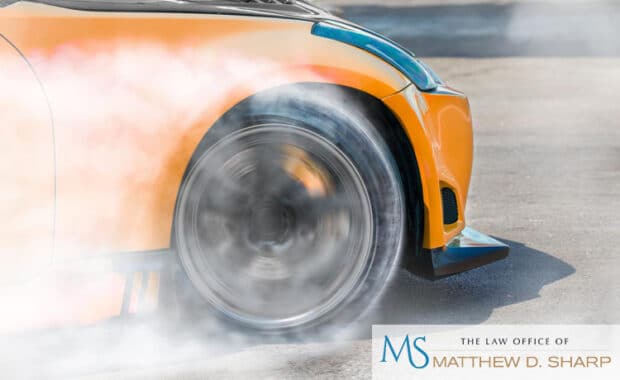Although it might not seem as serious a crime in comparison to an arrest for assault or DWI, you face serious consequences if arrested for driving with a suspended license (DWLS) or driving while your license is invalid (DWLI). This serious criminal offense in Texas may result in fines, surcharges, and jail time. If you were previously convicted for a DWLS or DWLI, a new incident may be enhanced to a more serious charge.
Texas is a big place that’s full of wide open spaces. The loss of driving privileges is distressing to many Texans. It’s challenging to use public transportation to get to and from work. Don’t go it alone. Contact an experienced defense attorney in Houston for a free initial consultation now.
DWLS and DWLI Charges in Texas
Under Texas Transportation Code Sections 521.344, 521.346, 521.350 (a), and 319 (a), a Texas driver may receive a license suspension for many reasons, such as 1) leaving the scene of an accident; 2) using a fake identification or allowing another person to use your valid identification; 3) knowingly evading police; 4) after a serious traffic accident that caused bodily injury or death to another person; and 5) driving while intoxicated or driving under the influence (DWI/DUI) or other alcohol-related offenses can result in a suspended or invalid license.
If you or someone you love is facing a driving with suspended license charge in Houston, Harris County, or anywhere in Texas, you need an experienced defense attorney now.
Laws and Penalties of Driving with a Suspended License in Texas
Under Texas Transportation Code, Title 7, Section 521.457 (DWLI or DWLS), if a driver operates a motorized vehicle on a state highway after his or her license was canceled or expired and doesn’t act to correct the cancellation, the driver is subject to criminal penalties. Under § 521.341, it’s not a legitimate defense if the driver didn’t receive a physical notice of the driver’s license suspension that was imposed due to a conviction of an offense. Under § 521.457 (d), the driver is assumed to have received notice of license prohibition, cancellation, revocation, or suspension if his or her notice was mailed as required by law.
Of course, a skilled defense attorney might vigorously argue that the client didn’t know about the suspension. The prosecution must prove that the driver knowingly drove with a suspended license.
- If you choose to get behind the wheel when your driver’s license is revoked or suspended, you may be charged with a Class C misdemeanor or higher level charges according to § 521.457 (e). Under Texas Penal Code § 12.23, you face a $500 fine if convicted. No one wants a police record. Contact a knowledgeable criminal defense attorney to evaluate your matter.
- In some circumstances, however, you may be charged with a Class B misdemeanor. For example, if you were previously convicted of DWLS or DWLI in Texas, if you didn’t have in-force vehicle insurance at the time the offense occurred, or if your driver’s license was previously suspended for operating a vehicle while intoxicated [Texas Transportation Code § 521.457 (f) (f1)], you face a maximum $2,000 fine and up to 180 days in jail. Jail sentences typically range from 72 hours to six months and fines ranging from $100 to $500 for a first offense. An experienced defense attorney will argue to reduce fines and jail time for clients.
- You may also face a Class A misdemeanor in some situations. For instance, if you drove a vehicle without in-force insurance and a crash resulted that caused serious bodily injury or death to another person [Texas Transportation Code Ann. § 521.456 (f2)], you may face a maximum $4,000 fine plus surcharges and up to 12 months in jail [Texas Penal Code § 12.21] If you’re facing a Class A misdemeanor, contact a knowledgeable criminal defense attorney.
In any scenario, if you’re convicted of driving with a suspended license in Texas, § 708.103 of the Texas Transportation Code states that you must pay a $250 surcharge on annual renewal of your driver’s license each year, for the next three years.
Examples of Driving with a Suspended License
Sometimes, good people get into trouble. Jill is divorced and her ex-spouse is late with three months of spousal support payments. Money is very tight, so Jill stops paying her car insurance. She suspects but doesn’t actually know for sure that not paying her car insurance will eventually do something to her Texas driver’s license. When she runs a red light in Houston, a police officer pulls her over. He runs Jill’s license and registration to learn both are suspended.
She is charged with driving with a suspended license. Even though she could have contacted her motor vehicle insurance carrier to discuss lower payments or contacted the Texas DMV about her registration status, she didn’t. Before she committed a DWLS or DWLI crime, she might have been able to reinstate her license by paying a reinstatement fee, additional fees, or fulfill other requirements. In some cases, the reinstatement fee is just $100 according to Sections 521.313 and 601.376 of the Texas Transportation Code.
Alternatively, she could have taken a second job, sold something of value, or borrowed money from a friend or family member to restore in-force car insurance, car registration, and driver’s license. Because Jill hadn’t had an accident or traffic ticket in more than 10 years, she thought it was a risk worth taking.
Without hiring an experienced defense attorney, Jill faces Class C misdemeanor penalties, a criminal record, and higher costs of renewing her license for three years. If convicted, she may lose her job as a kindergarten teacher.
In another example, James knew his driver’s license was suspended. He fled from the scene of an accident in which the other driver suffered serious injuries. He decided to borrow a friend’s car to do some errands. His friend didn’t realize that James’s license was suspended.
Unfortunately, another driver causes a rear-end collision with the car James is driving. When the officer runs the license and registration, he learns the vehicle belongs to someone else. James can’t present a driver’s license, and the officer doesn’t accept that it was forgotten at home. The officer learns that James is driving with a suspended license. Because of prior circumstances and as a result of poor judgment, James faces a Class A misdemeanor, jail time, fines, and the loss of an old friend. He is worried about his future and needs a criminal defense lawyer now.
Typical Timelines for Suspension
The timeline is quick for license suspension in Texas. Jill, an example we discussed above, stopped paying her car insurance. The insurer notified Jill by email and postal mail that failure to pay her car insurance would result in loss of her driving privileges. Jill didn’t heal the payment problem with the insurer or the state DMV. She drove on a suspended license instead.
Within a 30-day period, the insurer informed the state of Texas about Jill’s insurance policy cancellation. Neither Jill nor a new insurer informed the insurance company that new car insurance was in force. Texas automatically suspends Jill’s driver’s license and registration. Until she complies with the requirements to properly insure her vehicle and pay reinstatement fees, Jill doesn’t have legal driving privileges. If Jill drives a car with a suspended license after the insurer’s notification, she faces criminal charges within just 31 days.
Because Jill made a simple decision to stop paying her car insurance for a short period, a domino effect occurs. The insurer notifies the state, and the state suspends driving privileges.
If you’re arrested for driving with a suspended or revoked license, you must request a hearing with the Texas Administrative License Revocation (ALR) Program within 15 days of arrest. If you don’t take this step, you lose the right to appeal.
The Texas Department of Public Safety (TxDPS) must prove that the arresting officer acted on reasonable suspicion to pull you over or a probable cause to make an arrest. If alcohol or drug intoxication were involved, the officer must show probable cause that the defendant operated a vehicle while intoxicated. The prosecutor must prove that the accused drove with a revoked or suspended license and prove that the defendant was notified of the revocation or suspension.
An experienced criminal defense attorney will attack these charges. In Jill’s case, an accident didn’t happen. She ran a red light. Because she has no prior arrests or convictions, the defense attorney will do everything possible to make the case that Jill deserves another chance.
As discussed above, in James’s case, a knowledge criminal defense lawyer will do what’s possible to reduce the charges James faces for a Class A misdemeanor charge of driving with a suspended license in Texas.
What to Do Next If You’re Charged with Driving with a Suspended License in Texas
As you can see, the very best next step involves contacting a criminal defense lawyer. Matthew D. Sharp will prepare your case under Texas laws. If your charges include a repeat offense, you face more severe consequences. Call The Law Office of Matthew D. Sharp now to arrange a free consultation.






